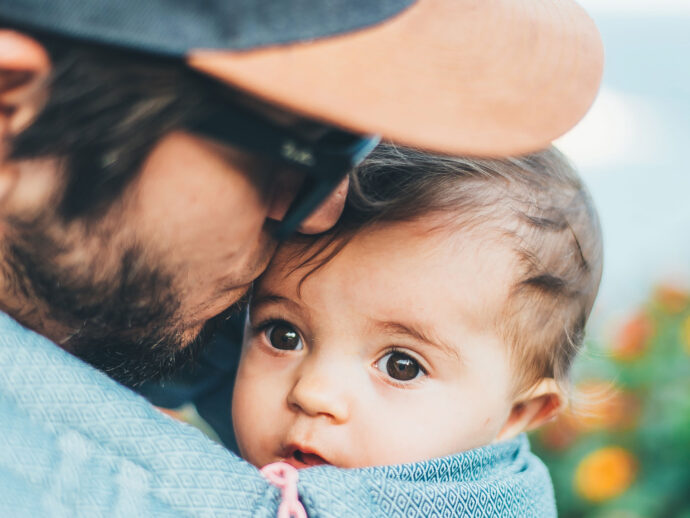
When it comes to the well-being of our children, there isn’t much we wouldn’t do. We deliberate over what we feed them, where it comes from, and how it’s prepared. We consider how much exercise, screen time, study time, and play time they get—all in an effort to raise healthy, happy families.
According to child and family counsellor Tanya Johnson, the “earliest years of a child’s life greatly influence their brain development, how they respond to stress, and their ability to form trusting relationships.” While physical considerations are significant to the well-being of our children, mental wellness is essential to their health in general. Without mental wellness, all health is at risk.
Unfortunately, mental illness affects approximately one in seven children and teens at some point, so while early identification of warning signs is important, fostering strong, resilient mental health from birth is essential.
Following are some beneficial strategies and useful tools to help nurture your children’s mental health at every stage of development.
Infant: 0 to 12 months
At this stage, attachment is formed. The foundation of mental wellness is laid by watching your baby and following their cues so they don’t become overwhelmed by too much interaction, or feel unsafe from too little.
Bond
How?
- Engage in frequent eye contact and touch. This creates security and deep bonding.
- To encourage attachment, use facial expressions and body language to communicate.
- Respond calmly and sensitively when your baby is distressed to create a feeling of safety.
Soothe
How?
- Provide a sensitive, calm response to baby’s needs; this will ensure they feel loved and protected, paving the way for strong mental wellness.
- Meet their needs, whether it’s food, love, or encouragement. Parenting coach Linda Clement urges parents at any stage to “meet the need when they have the need. Meeting it as it arises connects children to their own body’s experience.”
Toddler: 1 to 3 years
At this stage, exploration is taking place and toddlers have big, intense feelings. Validation and predictability are essential as they build a strong mental foundation.
Be consistent
How?
- Have patience and give positive feedback often.
- Show consistent reactions to behaviour; this will offer reliability and mental stamina.
- Create a safe and predictable environment
How?
- Teach your child that you are their safe person, protecting them as they explore their world and home confidently.
- Keep their environment comfortable and predictable. Clement suggests creating a safe space that’s cozy, calm, and nurturing, promoting a relaxed mental state.

Preschooler: 3 to 6 years
At this stage, children feel everything and need to express it. As Johnson warns caregivers, this can be beautiful, but also challenging, so fostering strong mental health now will provide benefits that last a lifetime.
Interact and foster independence
How?
- Talk openly at this stage about safety and other important topics. This furthers connection and will lay the foundation for future health and happiness.
- Engage with your child through creativity. Johnson believes strongly in “creative expression like play, art, music, dance, mindfulness, and a connection with nature for healing and feelings of security.”
- Allow for connection and separation when appropriate, helping your preschooler gain independence and mental strength through validation and attention.
- Help them regulate emotions
How?
- Try some breathing exercises with your child to lower stress and relax the brain. To learn how, visit anxietybc.com/parenting/how-teach-your-child-calm-breathing.
- Engage in physical exercise to help manage stress and build confidence.
- Read books that teach about feelings so they learn to express their emotions constructively.
School age: 6 to 12 years
At this stage, children are often spending more time away from primary caregivers and are developing friendships and independence. Understanding their world and communicating with them about it is fundamental to mental wellness.
Foster independence while staying connected
How?
- Attachment becomes less physical now, but emotional attachment is crucial. Reassure your child that you are there, keeping them safe, even from a distance.
- Keep communicating about subjects that are relevant to them, including technology, online safety, and relationships.
Maintain cohesive family time
How?
- Keep traditions and spend time as a family. This provides certainty and comfort within the home.
- Don’t overschedule. Aim for just one extracurricular activity a day and a full day off each week. Family time together is vital to creating unity.
Teenager: 13 to 18 years
At this stage of brain development, teens may become more self-conscious and might engage in risky behaviours. Connection is crucial but can be tricky, as teens often question and rebel.
Stay involved
How?
- Clement encourages parents to “make decisions out of love and trust, not fear. Trust that your child is sensible and will learn soon enough.” Open up topics and listen. If it’s never been mentioned, they will think it’s taboo.
- Offer freedom and a secure home base that invites discussion and safety while independence is growing; teens need you now more than ever.
- Include your teen’s friends whenever appropriate and make your home the hub of action. Rules are followed while maintaining a close connection with your child.
Don’t be too rigid
How?
- Communicating with teens is vital to understanding their point of view. You won’t be able to build trust with suspicion, so relax and stay open.
- Find balance between rules and leniency. Keeping your teens safe while allowing them to develop as individuals encourages accountability.
- Offer choices. At this stage, your teens are choosing their own friends. This isn’t always successful, but Clement claims it’s important to support them. This will foster trust and confidence.
Despite our best efforts, parenting can be hard. Johnson reminds us to be gentle with ourselves: “Although it may feel difficult to seek our own support, it holds powerful learning and healing that enriches our ability to parent.” Talking with other caregivers, friends, and teachers in our child’s life may offer additional perspective and can also provide needed support for families.
Possible warning signs of a mental health issue
- lack of engagement/limited eye contact in infancy
- abrupt changes in behaviour and/or communication
- changes in body image and eating habits
- self-harm; beginning or increased use of alcohol or drugs; talk of suicide
- physical complaints, such as head or stomach aches, sleep, or food issues
- problems coping with daily activities
For more warning signs, visit the Canadian Mental Health Association (cmha.bc.ca).
Want more information?
- If you’re concerned about your child’s mental health, consult your health care practitioner. For full descriptions of mental illnesses, visit the Canadian Mental Health Association (cmha.bc.ca).
- For more information on childhood mental health, contact our experts, Tanya Johnson at Wisdom From Within Healing (wisdomfromwithincounselling.com) or Linda Clement at Raising Parents (raisingparents.net).



































